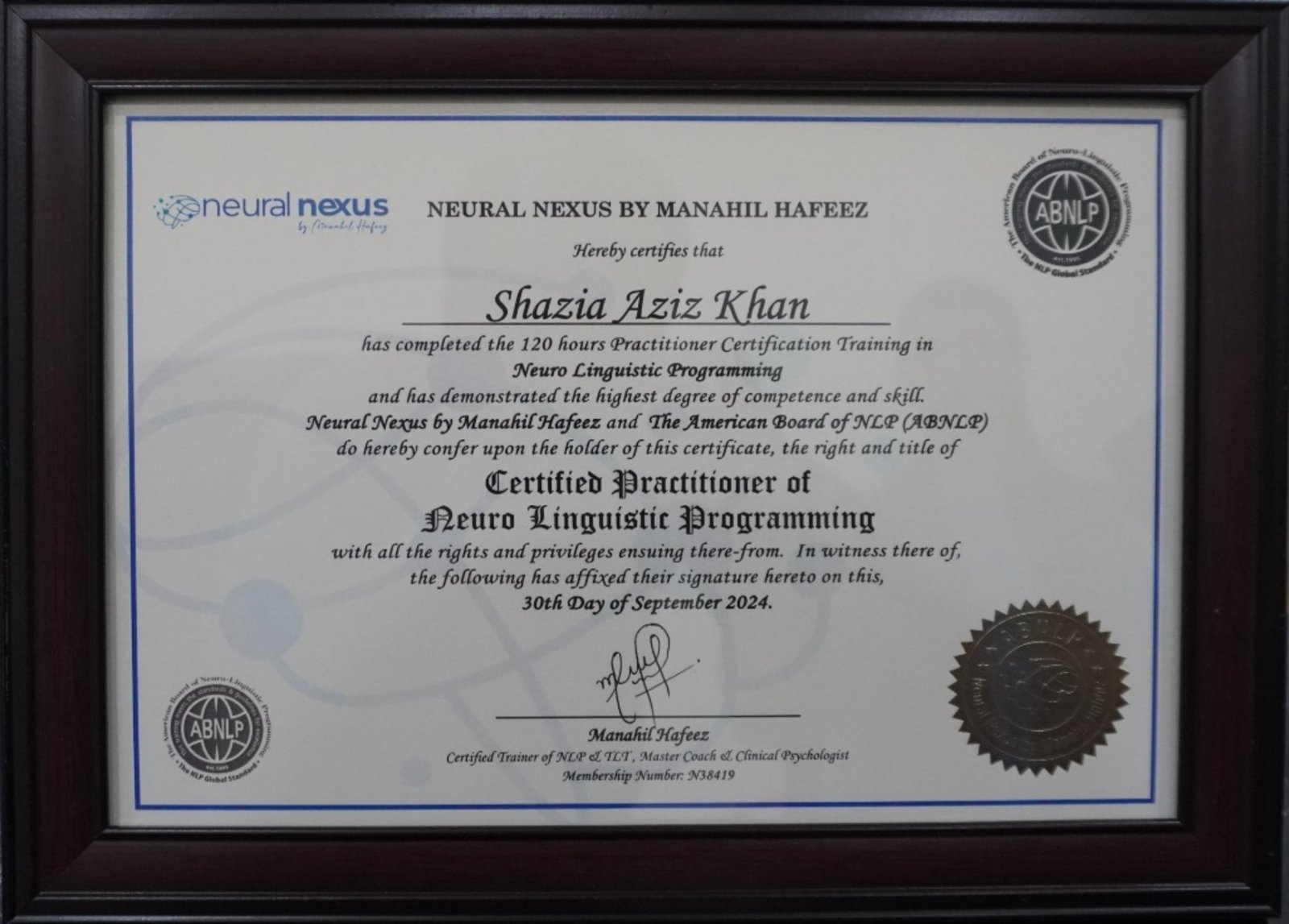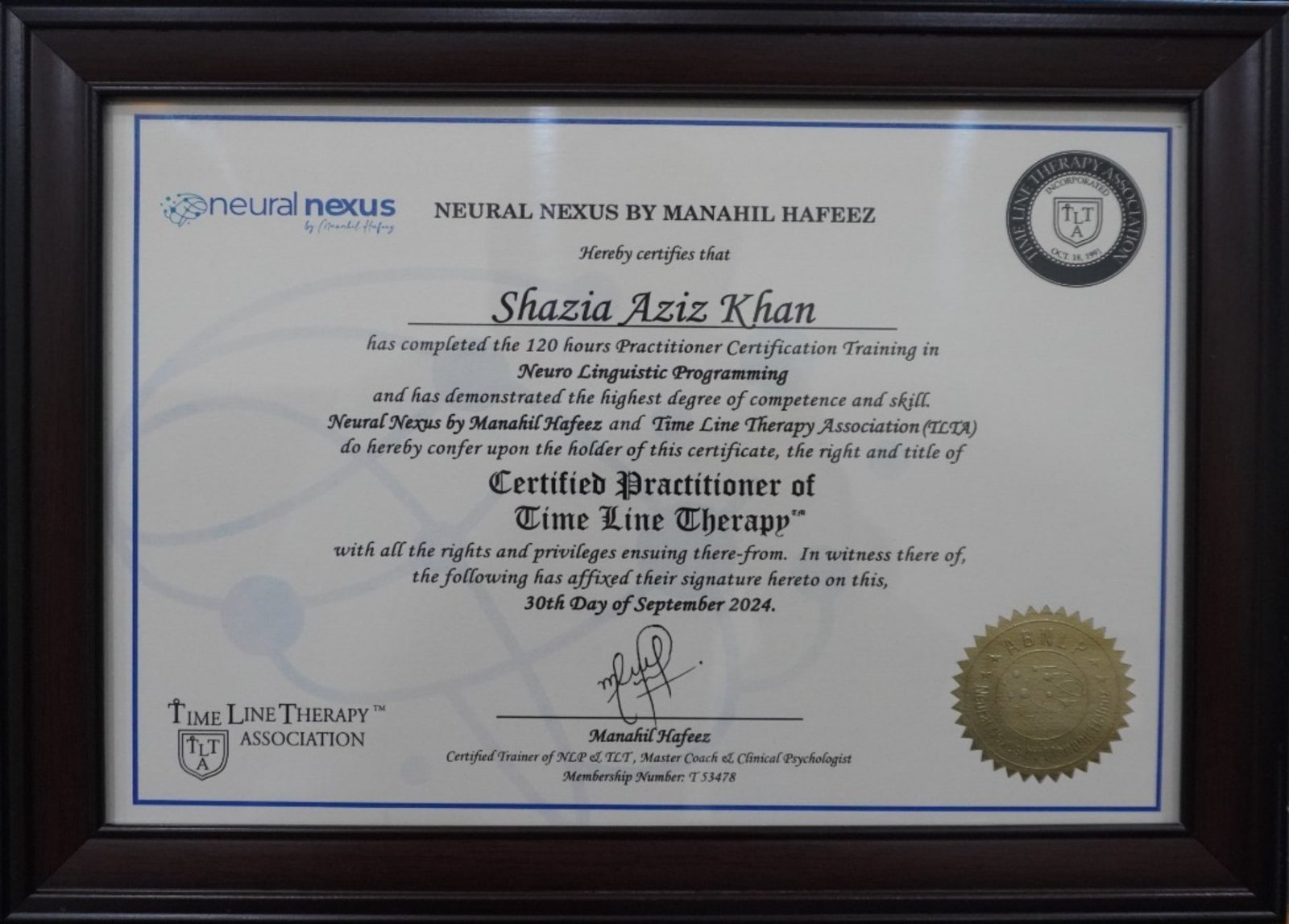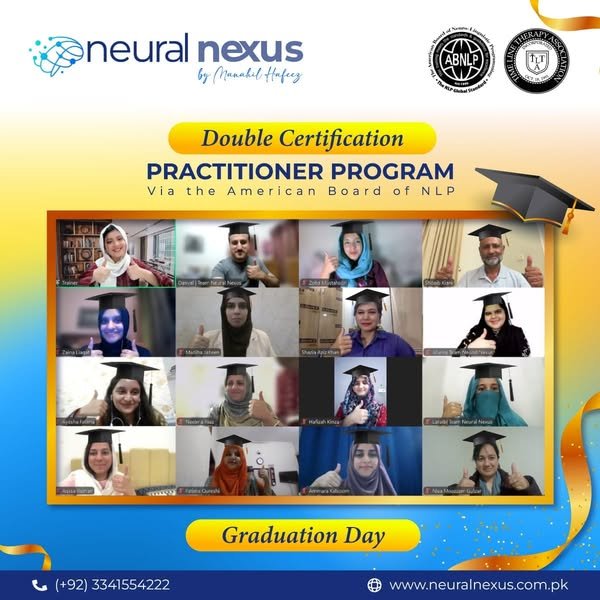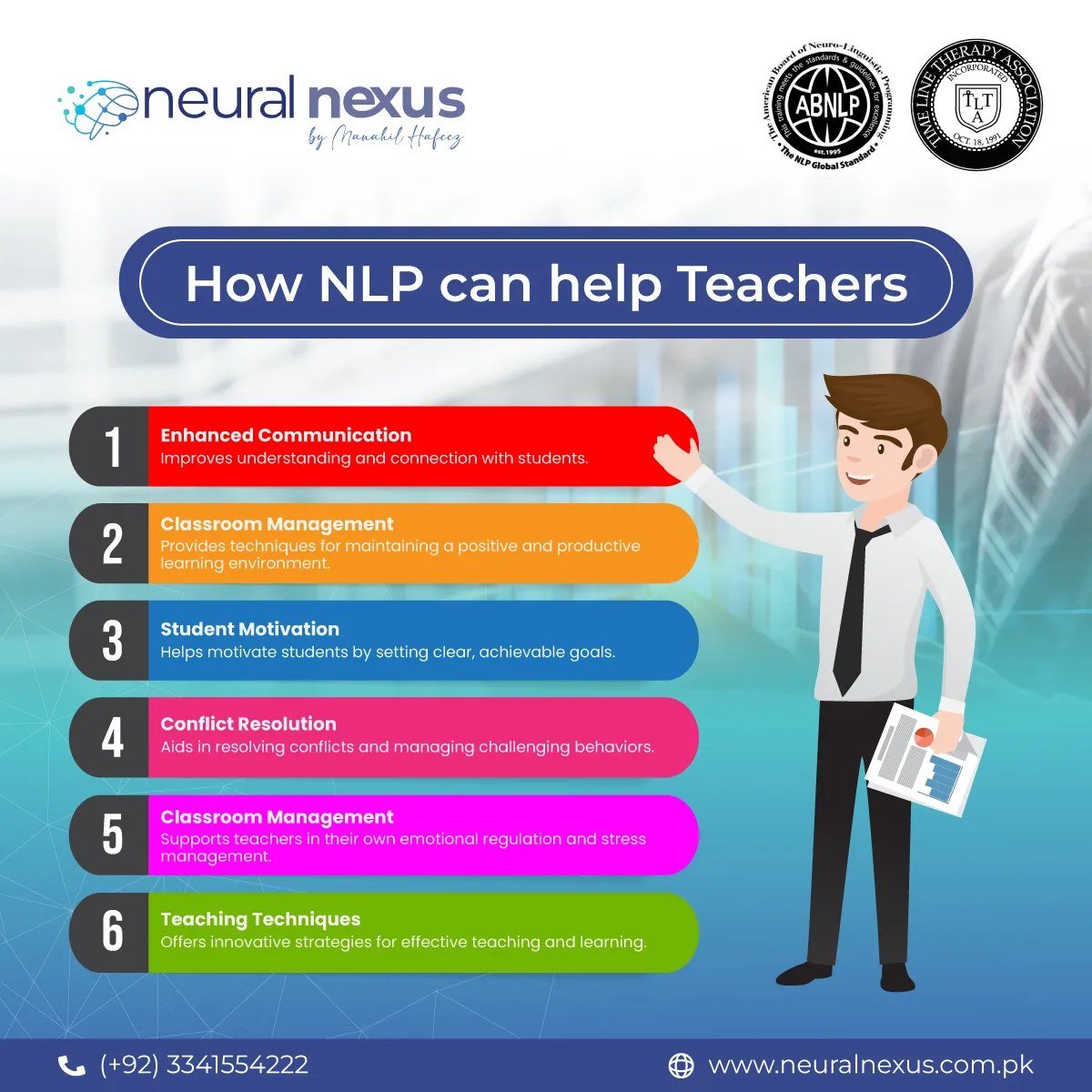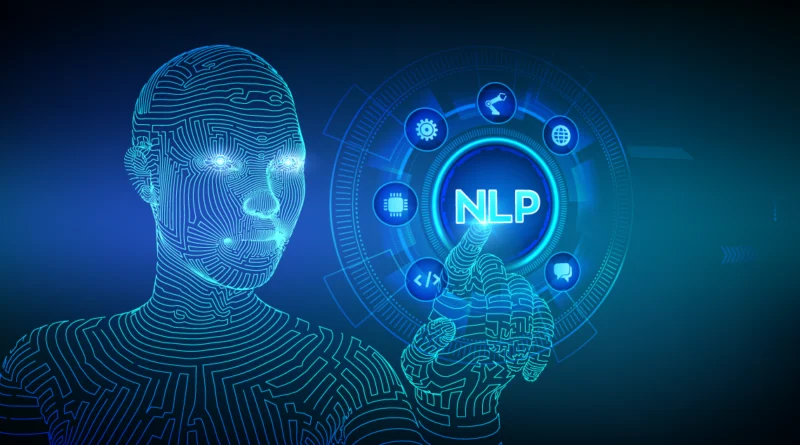Practitioner Training
Module 2
Practitioner of Neuro Linguistic Programming from the American Board of NLP (ABNLP) - USA.
7 Days Training
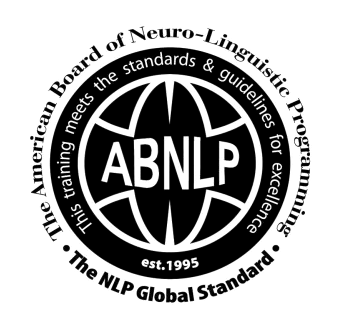
Since ABNLP is the biggest NLP authority on a global scale, its certification is accepted and acknowledged everywhere. You will be able to use NLP approaches in coaching, training, corporate, and personal development environments with this qualification. You will get a wide range of leadership strategies, improved communication abilities, and polished soft skills with this qualification. Getting certified as an NLP Practitioner will improve your abilities and establish your credibility as a professional in the NLP industry.
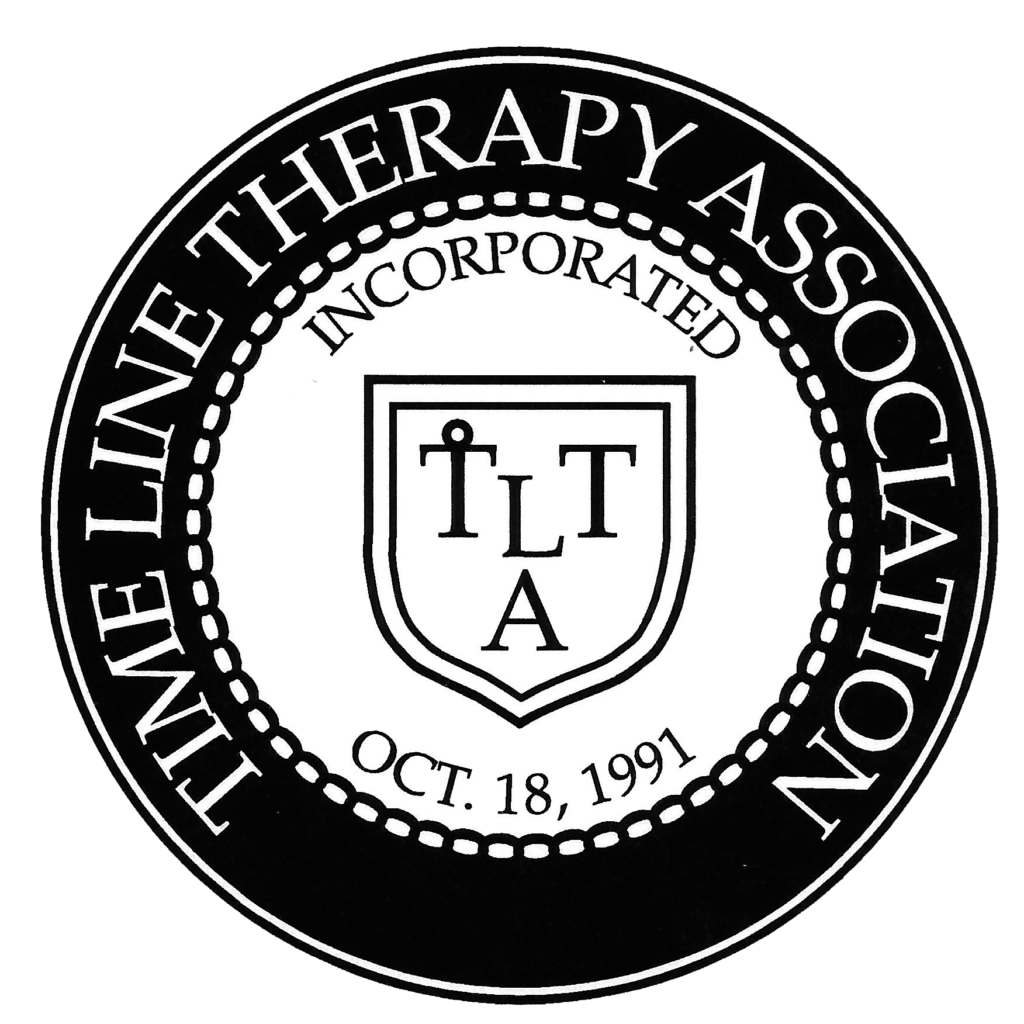
Since the Time Line Therapy™ Association (TLTA) is the biggest organization using Time Line Therapy® Techniques worldwide, many people are aware of its certification. The Time Line Therapy® Technique is said to be the best way to get rid of limiting thoughts and negative emotions. In coaching and therapeutic contexts, Time Line Therapy® Techniques have demonstrated efficacy. This method addresses the underlying problem at the neurological and unconscious levels, resulting in long-lasting transformation. Get this TLTA certification to enable yourself to assist others in realizing their own potential and transforming their life.
Practitioner Training Certification
CURRICULUM OF MODULE 2 –
DOUBLE CERTIFICATION PROGRAM
1. THEMES OF NLP
Understanding the 4 core ideas that set the foundation of how we think and work in NLP.
2. 5 PRINCIPLES FOR SUCCESS
Discovering the secret pathways for achieving success.
3. GOALS AND OUTCOMES
Comprehending the making of goals in the right way that brings results instantly.
4. STATE VS GOAL
Finding out the difference between state and a goal to clarify the steps that must be involved in achieving it.
5. KEYS TO AN ACHIEVABLE OUTCOME
Learning how we can make the outcome easiest to achieve and be fully aligned with your values and beliefs.
6. WELLFORMEDNESS CONDITIONS
Working on how must a goal be formed so that it creates effective results for you.
7. LEARNING STATE
Achieving a receptive mental state where you can avoid any distractions and absorb a lot of information.
8. THE GREY ZONE
Developing the awareness of comfort zone and the concept of happiness as well as unhappiness.
9. LINGUISTIC PRESUPPOSITIONS
Grasping the underlying assumptions in language that guide behavior and shape beliefs and attitudes, influencing how we interpret the world around us.
10. UNDERSTANDING THE PROBLEM AREAS
Exploring in depth how the client is developing the problems which sets the entire baseline of all the coming coaching sessions.
11. METAPHORS
Surpassing the CSF (Critical Faculty barrier) and enabling the client to access deeper unconscious resources.
12. META MODEL III
Intervention for loosening the frame of the problem and changing the direction of negative thinking.
13. INTRODUCTION TO TIME LINE THERAPY® TECHNIQUES
Diving into the core understanding of how the whole concept of time line works to release negative emotions and transform limiting beliefs.
14. ELICITATION OF TIME LINE # 1
Learning how to map out the client’s internal time line.
15. FIRST TEST OF ELICITATION
Testing out if the client is able to effectively navigate via the coach’s instructions.
16. WHAT IS GESTALT
Creating awareness on the principle of gestalt and its utility in Time Line Therapy®.
17. DISCOVERING THE ROOT CAUSE
Through connection with the unconscious mind, identifying the first ever event.
18. TLT FOR NEGATIVE EMOTIONS # 1
Releasing all negative emotions in sequential manner; anger, sadness, fear, guilt and hurt etc.
19. GENERAL REFRAMES
Reframes that allow negative intensity of emotions to completely release from the body.
20. TLT FOR ANXIETY
Learning the intervention to release anxiety which is a future based fear.
21. DETERMINING LIMITING DECISIONS
Comprehension of the limiting beliefs that hold back an individual’s potential along with their types.
22. TLT FOR LIMITING DECISIONS
Intervention to break through the limiting beliefs and convert them to new empowering beliefs.
23. ANCHORING
Understanding the science behind the anchoring process coming from behavior psychology principles and how to use them to get results in life.
24. STACKING ANCHORS
Getting a grip and hands on practice on the visual and kinesthetic anchoring to get the desired state.
25. SWISH PATTERNS
Technique to get rid of bad habits and undesired behaviors.
26. EYE PATTERNS
Learning how people’s eyes move when they access information inside their neurological symptoms (e.g., visual, auditory, kinesthetic) which helps to respond accordingly and build instant connections.
27. SYNESTHESIA and POSSIBLE OBSERVATIONS
Exploring what possible conditions can come into observation when dealing with eye patterns.
28. CREATING YOUR FUTURE
Future based work that allows an individual to achieve their goals with clarity and resilience.
29. SEQUENCE OF INTERVENTIONS TO FOLLOW AT PRACTITIONER LEVEL
How to structure all interventions step by step throughout the coaching process.
30. HOW TO SIGN COACHING CLIENTS?
Tips for marketing and branding yourself and understanding the ethical and moral boundaries in practice.
